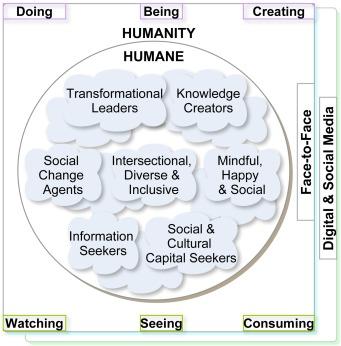Top Skills and Strategies for a Content Marketing Manager in Learning Solutions
If you’re passionate about shaping the future of education technology and aspire to join universities, colleges, or schools as a Content Marketing Manager in Learning Solutions, you’re in the right place. As EdTech rapidly transforms the educational landscape, institutions seek creative, data-driven professionals who can craft engaging content to connect with learners, educators, and stakeholders. In this extensive guide, we’ll cover the essential skills, leading strategies, benefits, and actionable tips to help you build a successful career in this dynamic field.
Why Content Marketing in Learning Solutions Matters
In the digital age, educational institutions increasingly rely on content marketing to create brand awareness, boost enrollment, foster engagement, and improve the learning experience. As a Content Marketing Manager in the EdTech sector, your role is critical in effectively communicating the value of technology-enhanced learning tools, online platforms, and digital resources to a diverse audience.
- Brand Differentiation: Set your institution apart with unique storytelling and resource-rich content.
- Lead Generation: Attract prospective students, educators, and partners with targeted messaging.
- thoght Leadership: Position your school, college, or EdTech product as an authority in learning innovation.
Core Skills for a Content Marketing Manager in Education Technology
Success in learning solutions content marketing requires a blend of creativity, analytical thinking, and industry knowledge. Below are must-have skills to thrive in this role:
1. Content Strategy Progress
- Audience Analysis: Identify and segment key audiences (students, faculty, parents, administrators).
- Goal Setting: Establish clear objectives for content campaigns—awareness, lead generation, or engagement.
- Editorial Planning: Build content calendars aligned with academic cycles and institutional priorities.
2. Remarkable Writing and Communication
- Storytelling: Craft compelling narratives about educational journeys, success stories, and technology impact.
- Multichannel Messaging: Adapt tone and style for websites, blogs, emails, and social media.
- Clear Instruction: Communicate complex EdTech concepts in audience-amiable language.
3. SEO and Keyword Optimization
- Keyword Research: Identify relevant keywords for the EdTech and academic space to enhance content discoverability.
- On-Page SEO: Optimize titles, headings, meta descriptions, and internal linking for higher rankings.
- content Analytics: Use tools like Google Analytics to monitor performance and refine strategy.
4. Digital Marketing and Promotion
- Social Media Expertise: Leverage platforms such as LinkedIn, Twitter, and Facebook to amplify reach.
- Email Campaigns: Design targeted email newsletters for different learner segments.
- PPC and Paid Ads: Manage digital ad campaigns to boost course enrollments or event attendance.
5. Visual Content creation
- Basic Design Skills: Create engaging graphics,infographics,and presentations using tools like Canva or Adobe.
- Video Content: Collaborate with media teams to produce tutorials,webinars,and testimonials.
6. Project and Team Management
- Collaboration: Coordinate with faculty, instructional designers, and IT specialists on content projects.
- Agile Workflow: Prioritize tasks, set deadlines, and manage multiple deliverables efficiently.
7. Data Interpretation and Continuous Improvement
- Analytics: Use data to track campaign success and adapt strategy based on user engagement and feedback.
- Experimentation: Test new content formats, messaging techniques, and channels to find what resonates.
Key Strategies for Effective Learning Solutions Content Marketing
Applying the right strategies is just as crucial as mastering the core skills. here are some actionable approaches:
1. Understand the Education Buyer’s Journey
- Map out student and educator personas.
- Develop content that addresses pain points at each stage—from discovery to enrollment or adoption.
- Provide value-added resources such as success guides, eBooks, or webinars.
2. Leverage Educational Storytelling
- Share authentic stories that highlight technology’s positive impact on teaching and learning outcomes.
- Feature faculty innovations, alumni testimonials, and student achievements.
3. Diversify Content Formats
- Produce blogs, how-to guides, video tutorials, podcasts, and case studies.
- Cater to varied learning preferences to maximize engagement.
4. Implement Data-Driven Decision Making
- Analyze user behaviour, content performance, and conversion metrics.
- Adjust content topics and distribution strategies based on actionable insights.
5. Foster Community Engagement
- Encourage discussions through forums, comment sections, and interactive posts.
- Host live Q&A sessions or webinars to connect with your audience.
Benefits of Working as a Content Marketing Manager in Learning Solutions
If you’re considering a career move into the EdTech sector,here are some compelling reasons to pursue a Content Marketing Manager role in learning solutions:
- Purpose-Driven Work: Play a part in transforming lives through education and digital empowerment.
- Professional Growth: Gain exposure to a rapidly evolving field with countless innovation opportunities.
- Networking: Connect with educators, thought leaders, and learners worldwide.
- Job Security: As digital education grows, content expertise is increasingly in demand across colleges, universities, and schools.
- Creativity and Impact: Develop unique campaigns with direct influence on institutional success and student engagement.
Practical Tips to Land and Succeed in a content Marketing Manager Role
- Stay informed: Regularly read EdTech news,thought leadership pieces,and case studies to understand market trends.
- Build a Portfolio: Assemble a diverse range of content samples—blogs, video scripts, infographics, and campaign reports.
- Develop Technical Skills: Learn to use CMS platforms (WordPress, Drupal), SEO tools, and basic HTML/CSS.
- certifications: Pursue online marketing courses in digital strategy, content creation, or analytics to boost your credentials.
- Network: Join EdTech professional groups, online communities, and attend relevant webinars or conferences.
- Show Results: Quantify achievements such as increased web traffic, higher engagement rates, or successful campaign launches on your resume and in interviews.
Conclusion: Your Path to Success in EdTech Content Marketing
A career as a Content Marketing Manager in Learning Solutions at universities, colleges, or schools is both rewarding and impactful. By mastering the essential skills—ranging from strategic content planning to digital marketing and analytics—you position yourself as a valuable link between educational technology and its users. Remember, achieving success in this role takes continuous learning, creativity, adaptability, and a data-informed mindset. With the practical strategies and tips outlined in this guide, you’ll be well-equipped to make your mark in the vibrant world of EdTech and contribute significantly to advancing digital education.

